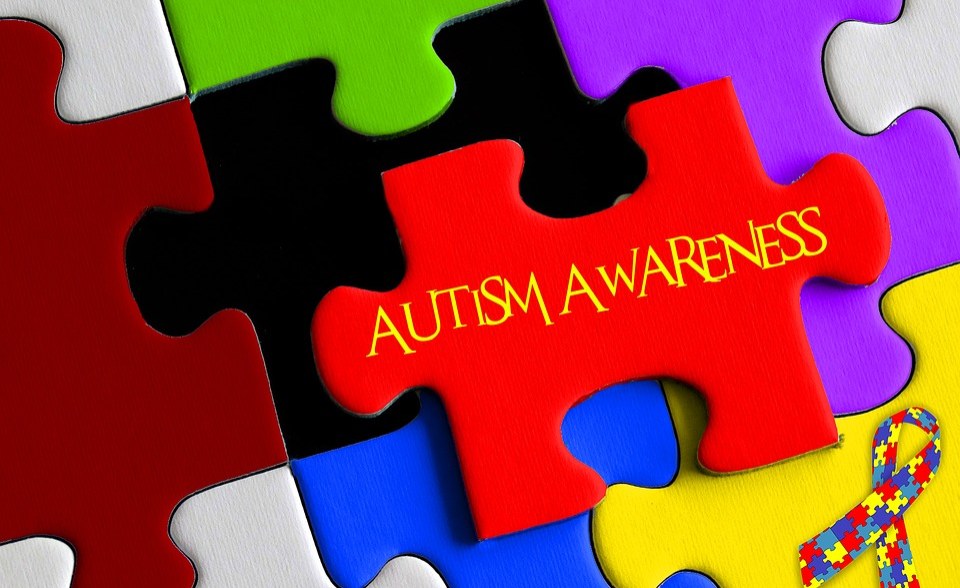Izakuje Kamandoora and Ricardo Mbaeva noticed their son walking on his toes and when angry, he would hit his head against the wall. Additionally, little Denzil would randomly start spinning while standing or rub any object on his face and mouth.
“Honestly speaking; no signs of autism in his early days or maybe it could be due to the lack of knowledge about the condition but I did not notice any difference until the age of two,” Kamandoora told Vital Signs.
The Namibian couple who is based in the UK is now working around the clock to create awareness around autism since their five-year-old Denzil was diagnosed with the disorder.
Kamandoora said her campaign to spread awareness around autism is because of people’s attitudes around children with autism.
“When you come to a certain place and people notice that you have a child with special needs, the way people stare, the way they talk amongst themselves, the way their energy and attitude change affects a person in a way.”
“Children with special needs behave differently. They can be touchy sometimes. They can be loners in a corner, and sometimes people would wonder why a child is touching them, and that tends to be a little discomforting when an elder is reacting like that to a child with special needs,” said Kamandoora.
She appreciates the level of understanding from people in her neighbourhood, as she has noticed some sort of positive attitude shift in their behaviours.
The mother of three admitted that having a child with special needs is a “hard pill to swallow” and it is sometimes difficult to come to terms with.
“At first, it was overwhelming and difficult to realise that I have a child with special needs, and I would question God why my life turned out like this.”
She was questioning the life changes because Denzil was the first of her three children whom she raised, but with the support of her husband, she has managed to come to terms with the realities and has now ventured on a path of educating others and the importance of dealing with special needs children. They do so by sharing videos of their little Denzil on YouTube under the name ‘Life with Denzil k’.
Denzil has an older sister, aged seven, who is in Namibia, and a younger sister who is a year old in the UK.
“We need to count our blessings as human beings, God chose to give me a child like Denzil, but there are parents out there who are having more difficulties in raising their children with special needs and that is what I have realised,” she noted. Kamandoora said Denzil is her ray of sunlight and gives her hope in abundance to take it one day at a time.
“What I have noticed about children with autism, especially Denzil, is that they don’t play with their peers. Denzil prefers to associate with grown-ups and his little sister. He’s very fond of her and for some weird reason he only prefers to be with her, and no other child,” she said.
Common disorder
Paediatrician at MediClinic, Professor Clarissa Pieper told Vital Signs there are no clear indications of how autism develops in children apart from the fact that it is much more common now, adding that the incident ratio of autism in boys is 1:42 and 1:82 in girls.
“It is a very common disorder, sometimes parents don’t know that there is something wrong with the child until 18 months; they would say the child is slow or is like the grandfather -whatever the case may be,” said Pieper.
She added that one big challenge for children with autism is language impairment, playing by themselves, and those who do not like to be disturbed when they are playing and would throw a major tantrum.
“Some of the signs that a child may be autistic is they have OCD. Every evening, for example, they would arrange their cars next to the bed and if that is changed, they would get extremely upset. Other subtle signs include children who walk on their toes all of the time and hardly make eye contact with anyone and if they do, it is for a fleeting moment and this is a major factor that we find when you look at children with autism,” explained Pieper.
Sign up for free AllAfrica Newsletters
Get the latest in African news delivered straight to your inbox
By submitting above, you agree to our privacy policy.
Success!
Almost finished…
We need to confirm your email address.
To complete the process, please follow the instructions in the email we just sent you.
There was a problem processing your submission. Please try again later.
She said it is important for parents with autistic children to come to terms with the condition so that they can start with speech and occupational therapy from the onset.
“An autistic child can go to a normal school and people should know that autism is a huge spectrum. The other day I mentioned to someone that I think we are all autistic in one way or the other because we have some sort of quirky little things that we do,” she stated.
Pieper said autistic children are not often mentally impaired, they are absolute geniuses when it comes to certain things whether it is colour recognition, numbers, or a fascination with something, adding that most of the children are not severely autistic and all they require is proper treatment.
Read the original article on New Era.
This content was originally published here.
